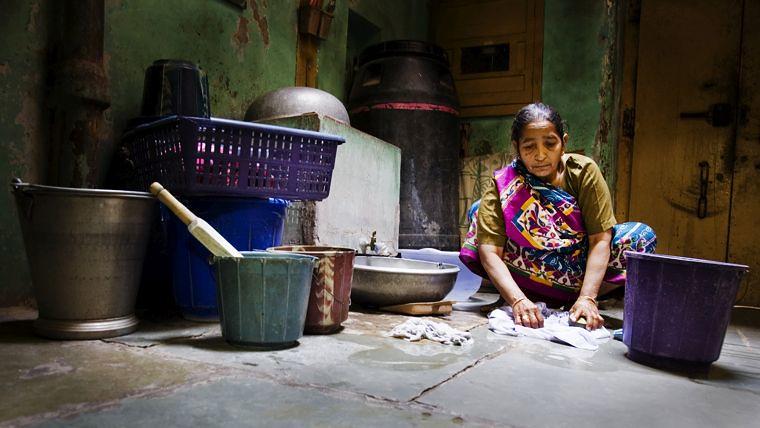Union Initiatives Promise a Unified Voice for Domestic Helpers to End Exploitation

Representational Image. Image Courtesy: Flickr
Kolkata: Malati Mondal (39) and Jharna Baidya (23) begin their day at 3:30 am in their village near Taldi in West Bengal’s South 24 Parganas district. They finish preparing food for their families and go to the railway station by 4:45 am to catch the popular “domestic workers’ local” to Sealdah from Canning.
The sheer number of domestic workers who commute daily to Kolkata by these two trains from Canning and Laxmikantapur has led to these trains being locally referred to as ‘Jhi Special’ (the term ‘jhi’ refers to domestic workers in Bengal, even though originally the word was used to denote any young girl in the colloquial language until the 1950s). Every morning, thousands of women pour into Kolkata on these jam-packed trains to earn their livelihood as domestic workers in and around the city.
However, the COVID-19 pandemic upturned the lives of these workers. During the first wave of the pandemic last year, several of them were forced to pawn their jewellery to survive, as the train services they rely on for their commute remained closed owing to the lockdown restrictions.
For Rakhi Mondal, 29, a mother of a teenage daughter, a life of strenuous work began when she became a mother at 16 after marriage at 15. Her daughter is now 13 years old. She works as a maid doing domestic work (washing clothes, utensils, and household cleaning) that starts at 5 O’clock in the morning. She has to reach the first home where she starts work at 6 O’clock, and then one by one, she goes to eight houses to work as a jhi. She earns about Rs 9,000 a month.
Rakhi and many others like her recently participated in the state’s first Domestic Helps Union conference. The domestic helpers there discussed how they are exploited day in and day out, not receiving just remuneration for their work. “We want our rights as workers,” they said in unison at the conference.
After laying a wreath at the Martyrs’ Column, the organisation’s president, Indrajit Ghosh, inaugurated the conference. CITU leader Gargee Chatterjee inaugurated the conference. In her speech, she said that both the Modi and Mamata governments do not think about the country’s poor people; their aim is to increase corporate profits. “Both governments are making the lives of the common people more distressing. Under these circumstances, domestic helpers are living under very precarious conditions. She mentioned that in society, people want to live with self-dignity. Domestic helpers are being stripped of self-dignity and facing societal slurs. Along with their own set of demands, the demand to change society should also be included in the list of demands that this union should make,” he said.
The conference was greeted by CITU state President Subhas Mukherjee. In their reporting session, the delegates depicted how they are not allowed to use toilets in their workplaces and demanding a wage increment leads to job loss. They are often termed as ‘chotolok’ (lowly people) by the upper-echelon people where they work, Mukherjee said, adding that even festival bonuses are not assured in the households.
The conference elected a 45-member new committee with Indrajit Ghosh as president, Shilpi Sarkar as secretary, and Archana Maji as the organisation’s treasurer.
Get the latest reports & analysis with people's perspective on Protests, movements & deep analytical videos, discussions of the current affairs in your Telegram app. Subscribe to NewsClick's Telegram channel & get Real-Time updates on stories, as they get published on our website.
























